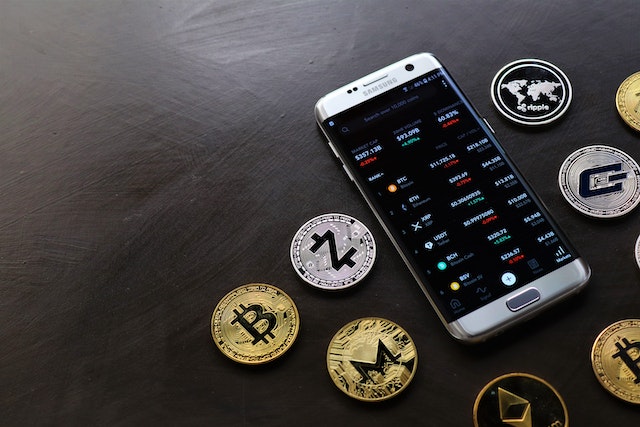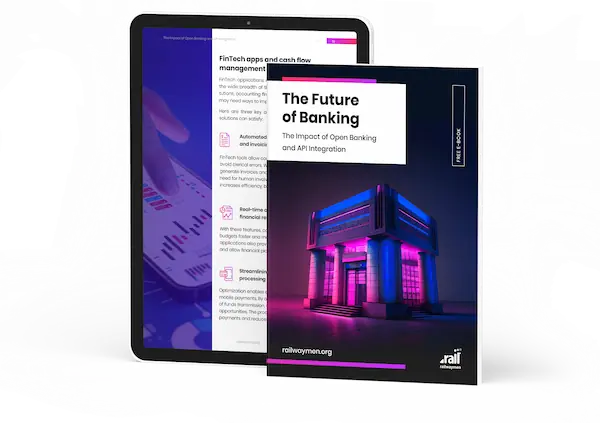Identity verification is a process that plays an important role in the financial industry. It prevents fraud and the occurrence of money laundering. Conducted in the traditional way, identity verification posed quite a few inconveniences due to the cumbersome and time-consuming nature of the process. Among the requirements, it was necessary to provide detailed documentation and have a lot of control over the processes carried out by the verified entity.
However, the growth of the FinTech industry has meant that verification is no longer a post-terror. The growing emphasis on digitalization has contributed to the development of faster yet more secure identity verification processes.
That's why I decided to take a look at how the aforementioned verification interacts with blockchain technology, which is convincing more and more users. I will try to explain how blockchain uses identity verification in FinTech applications to improve efficiency and security in the verification processes performed.
Table of Contents:
2. How can Blockchain be used for identity verification?
3. Benefits of Blockchain-based identity verification.
4. Smart Contracts for identity verification.
5. Decentralized identity management.
6. Interoperability of Blockchain networks.
8. The future of blockchain-based identity verification.
What is Blockchain?
Before I get into specifics, I decided to mention a bit about what the aforementioned blockchain actually is. In the simplest terms, it is a distributed ledger technology that allows secure yet transparent transactions between parties without the need for intermediaries. All transactions made are verified and at the same time recorded in a decentralized network of computers which prevents data changes.

How can Blockchain be used for identity verification?
Well, now that the theoretical part has been completed with the necessary information, it is time to learn about blockchain technology from the practical side. Blockchain can be used to create a unique digital identity, the hallmarks of which will be security and tamper-resistance. Identity verification is created based on individual criteria given to each person and entity. It is stored on the blockchain network, which is not subject to change and manipulation.
Verification of the user's identity is done through the option of sharing the digital identity with a third-party application. This role can be performed, for example, by a FinTech platform. The aforementioned platform has the ability to use the blockchain network to carry out fast yet secure verification. Without the need for time-consuming checks and documentation in the process.
Benefits of Blockchain-based identity verification
There are many positive factors in favor of integrating blockchain-based identity verification into FinTech applications. Among them, the most commonly mentioned are:
- increased security: compared to traditional verification methods, a solution using blockchain capabilities is not subject to manipulation;
- reduced fraud: the use of the aforementioned method makes it reduce the occurrence of fraud and money laundering to a minimum;
- improved efficiency: the reduction in time compared to traditional methods makes time-consuming checks a thing of the past;
- increased privacy: the use of blockchain technology gives users more control over their personal information compared to previously known identity verification methods.

Smart Contracts for identity verification
Smart contracts are, in the simplest terms, self-executing contracts linked between buyer and seller and written directly in lines of code. They are a component feature of blockchain technology and are often used as part of identity verification. This option is often used to verify the identity of both individuals and businesses before there is an opportunity to implement a service on the blockchain. With this transaction, only previously verified and authorized parties can interfere in the process.
Decentralized identity management
Decentralization is another link in the chain of applications of blockchain technology. In this case, identity verification is based on the development of a decentralized network of providers who can export identity data to other service providers. In this way, the information is not controlled solely by one entity.
Interoperability of Blockchain networks
Among the possible challenges in implementing identity verification is the lack of interoperability between blockchain networks. As a corollary, this means that identity data that is collected on one blockchain network may be inaccessible or impossible to transfer to another network. Work is currently underway to develop standards and appropriate protocols that would allow seamless integration of diverse blockchain networks. In such a way as to facilitate information sharing and to better verify data.
Regulatory compliance
While blockchain-based identity verification has several benefits, it is necessary to guarantee that it is compliant with relevant rules. For instance, the General Data Protection Regulation (GDPR) in Europe sets out strict rules for the handling of personal data, and companies using blockchain-based identity verification must ensure that they comply with these regulations. Failure to comply can result in significant fines and legal repercussions.

The future of blockchain-based identity verification
As blockchain technology continues to develop, its use in identity verification is expected to become more widespread. This will lead to more efficient and secure verification processes, reducing the risk of fraud and money laundering. However, as with any new technology, there will be challenges to overcome, including regulatory compliance and interoperability between different blockchain networks. Nevertheless, the potential benefits of blockchain-based identity verification make it a promising technology for the future of the financial industry.

Check out Railwaymen app using blockchain technology
Looking for a platform that combines the power of blockchain technology with innovative business ideas? Look no further than CreateCoin created by Railwaymen. As the world's first blockchain-based ideas platform, CreateCoin allows users to play an active role in shaping the future of the FinTech industry. So if you're interested in exploring the potential of blockchain-based platforms for innovative business ideas, head to CreateCoin Case Study today and discover the power of the world's first blockchain ideas platform.
CHECK OUT CREATECOIN OUR CASE STUDY
Take advantage of the expert knowledge contained in the latest e-book
If you want to dig even deeper into the potential of the financial industry, then download the e-book from Railwaymen, "The Future of Banking: The Impact of Open Banking and API Integration." There you will find indispensable information about the upcoming changes in the financial world, supported by expert opinions.
It's time to explore the future of banking
Are you interested in the future of banking and how it will affect your business? Our e-book "The Future of Banking: The Impact of Open Banking and API Integration" provides a detailed analysis of these changes. With thought-provoking insights and expert analysis, you will be able to prepare for the challenges and opportunities ahead.
DOWNLOAD NOW


%20(1).jpg)



